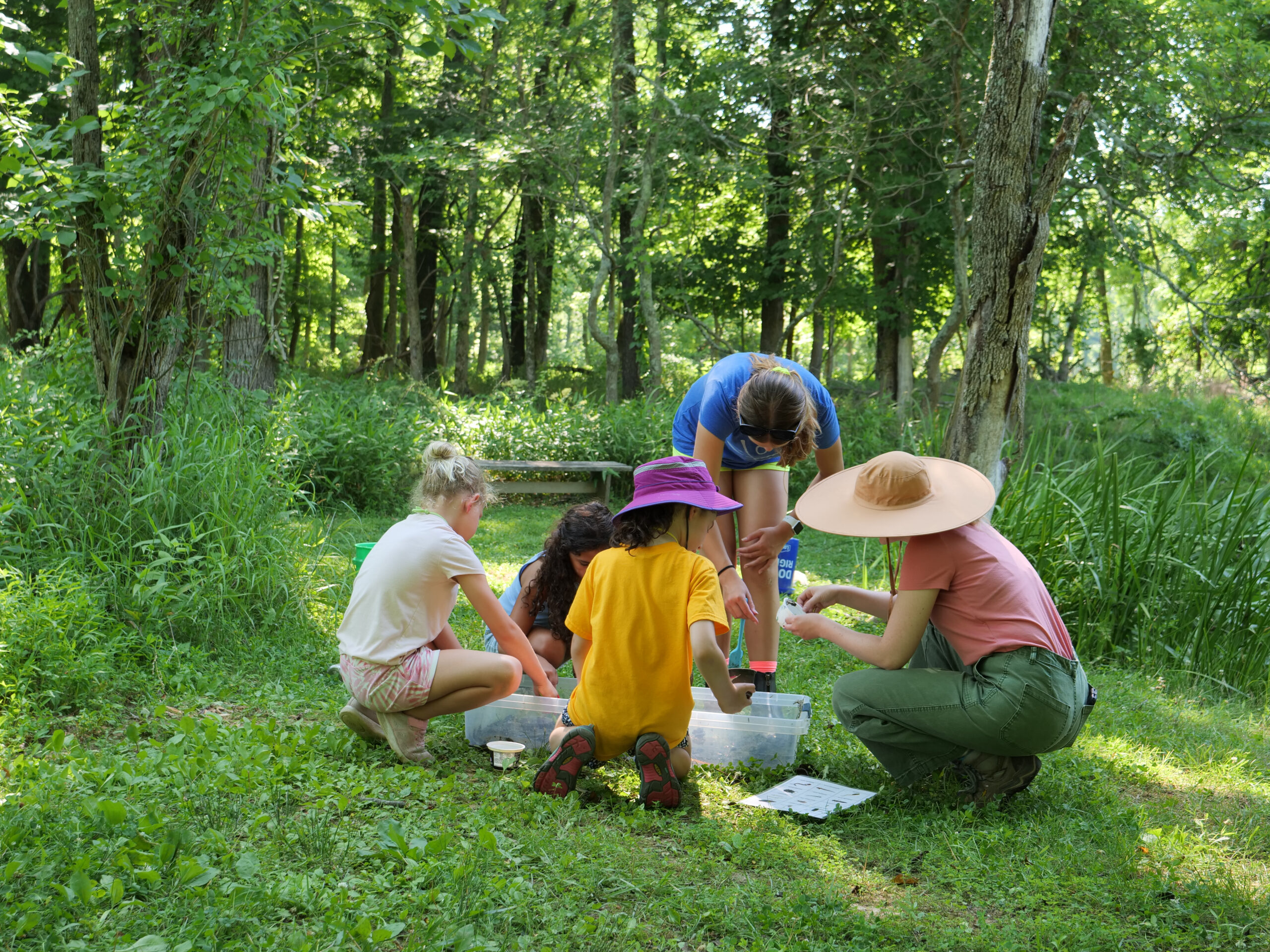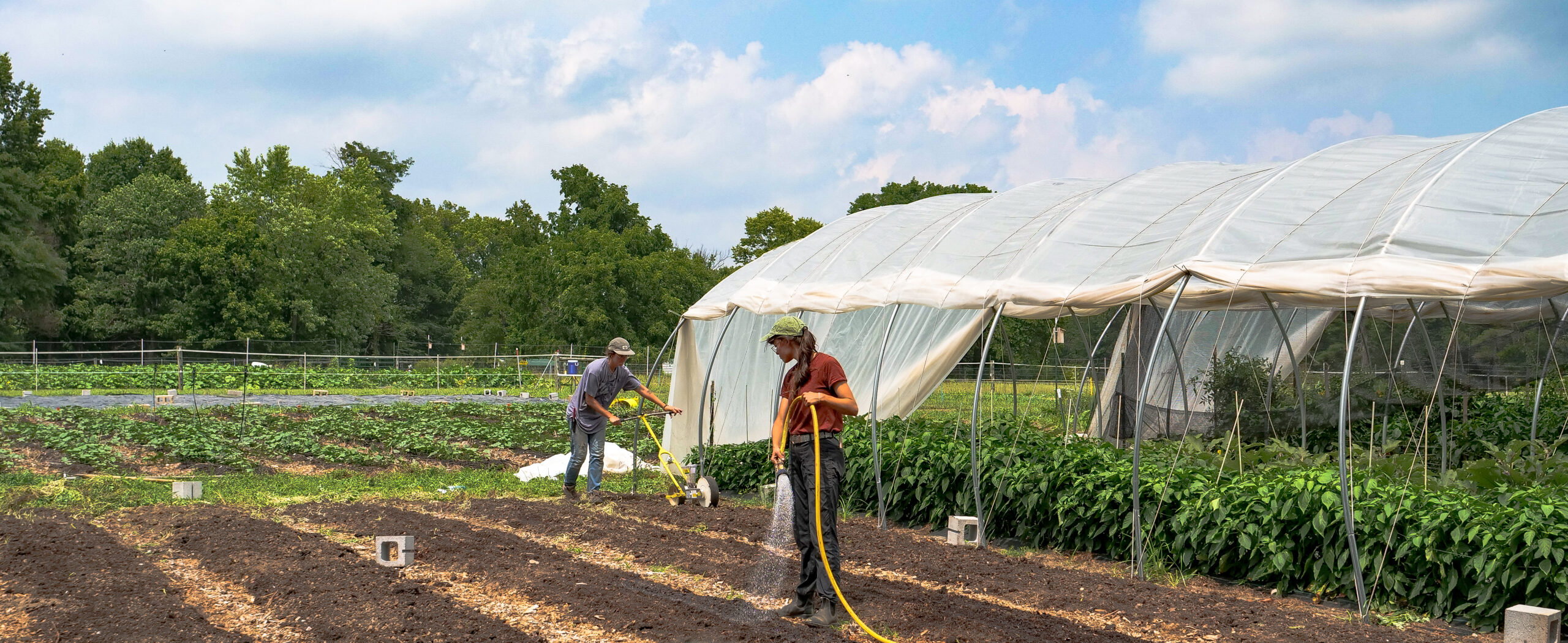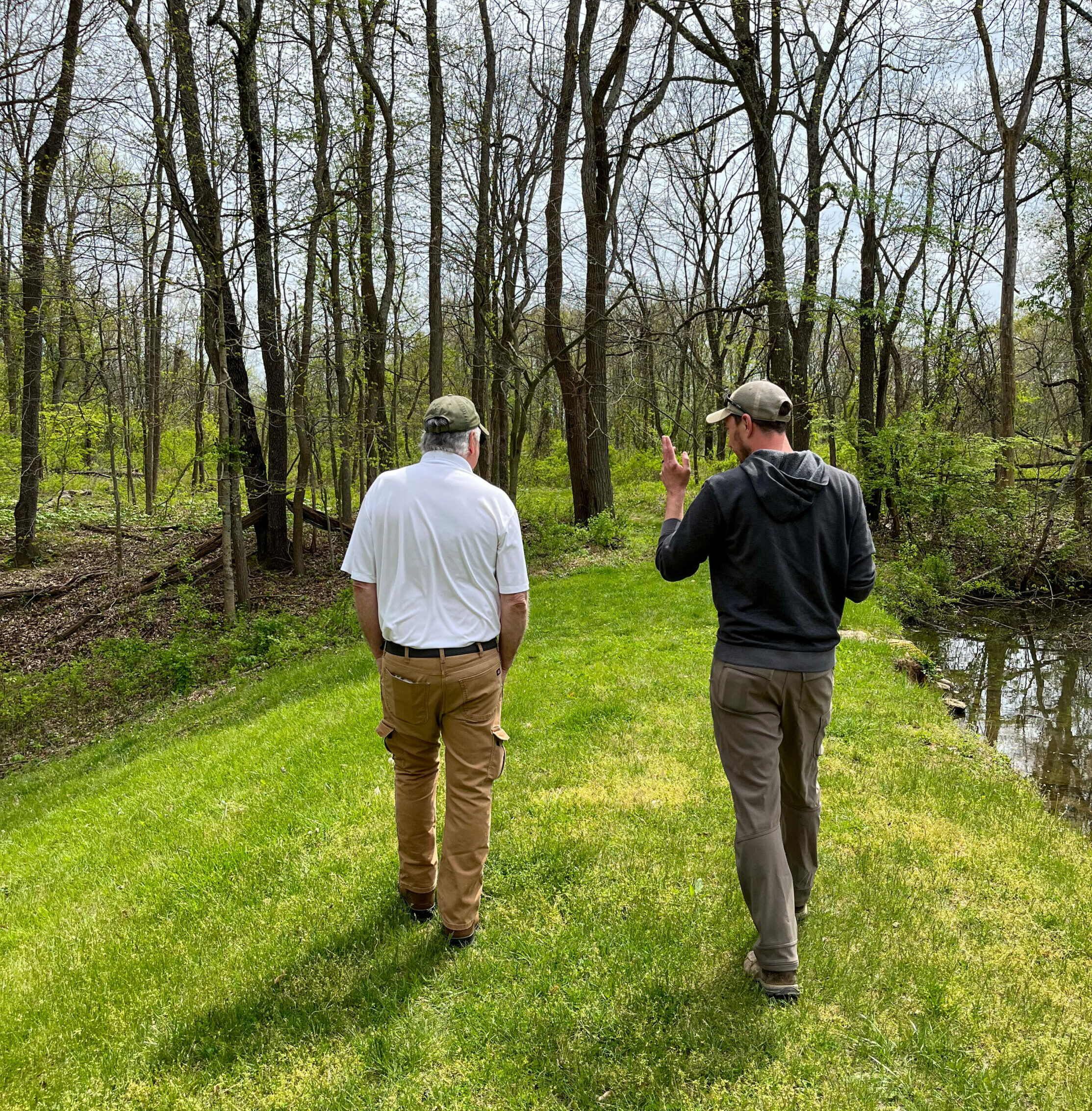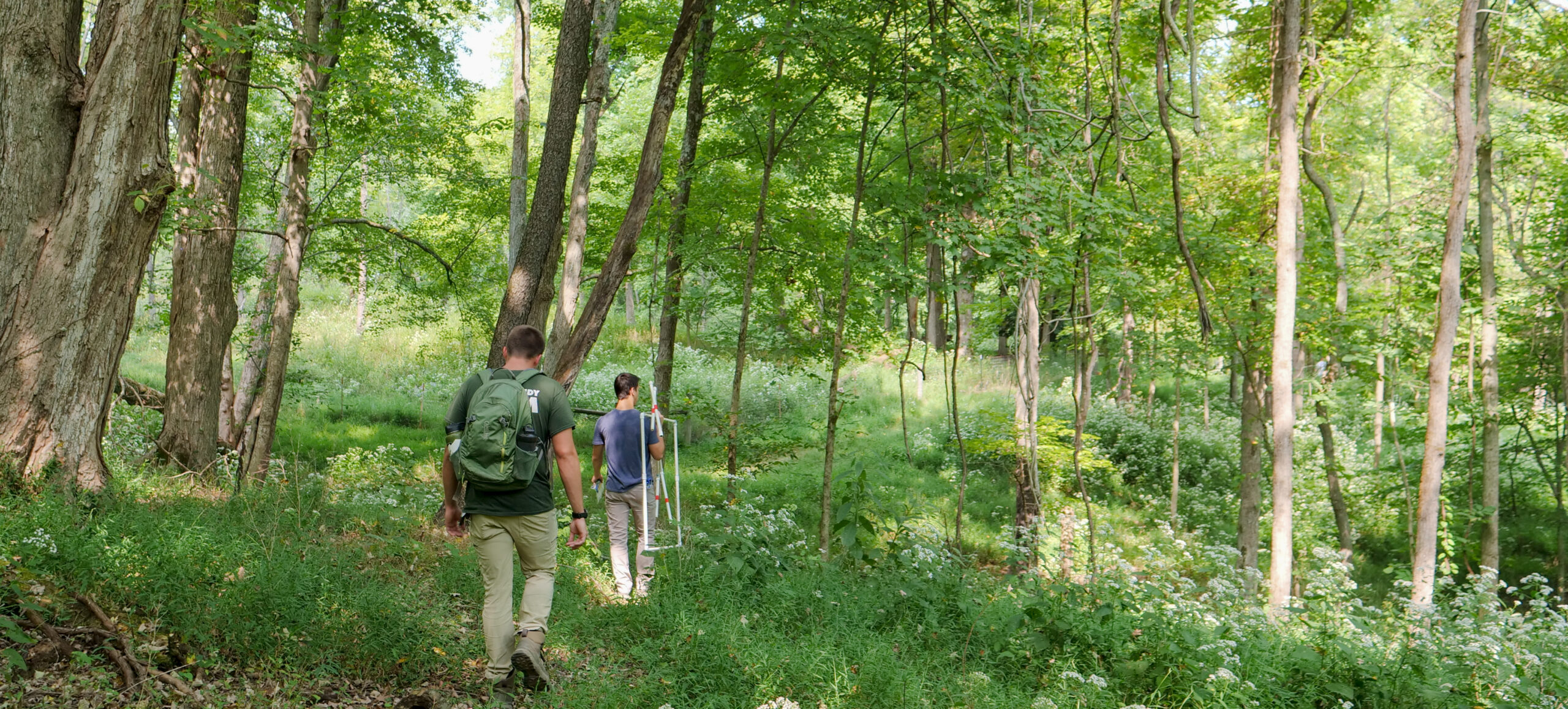Deep Roots, Bright Future: A New Chapter in Greenacres’ Legacy

Deep Roots, Bright Future
A New Chapter in Greenacres' Legacy
In his final weeks as President of Greenacres Foundation, Carter Randolph shared his thoughts with our team about the enduring success of Greenacres and how we will continue to be an indispensable asset for our communities in the years ahead. Reflecting on his time as President and looking forward to his role as Chairman of the Board, Carter discussed the core values that have driven Greenacres for over 36 years and his hopes for the future. Here are Carter’s thoughts:
Greenacres has remained true to the Mission and Vision of Louis and Louise Nippert. Thanks to their generosity, what began as a dream in 1974 became a reality in 1988. Today, we welcome over 30,000 community learners annually for hands-on educational experiences, provide $1 million annually for research in agriculture, environment, education, and arts, host private events, offer adult education, and run the Exploring with Grace after-school programs.
Staying true to the values of our founders is the bedrock of our success. Our decisions are guided by their values of Grace, Good Neighbor Policy, Generative, Green, Giving, and Quality, Quality, Quality. These principles shape our efforts and help us provide meaningful experiences in agriculture, the environment, and the arts. Our commitment to these values has shaped our culture, keeping us aligned with the Nipperts’ original Mission. By adhering to these principles, we honor the legacy of the Nipperts and continue to build a better future for our community.
The Five G’s
The Five G’s embody the values of our founders, the Nipperts. They lived by them and we hope others see and follow their example.
Giving
The Nipperts left three significant gifts to the community when they established Greenacres. The first gift was the Mission, inspired by their vision. In 1974, Mr. Nippert envisioned a working farm using pre-1945 agricultural techniques aligned with nature, where children could learn about the importance of nature and biology in food production. Mrs. Nippert added that while agriculture nourishes the body, the arts are essential for the mind, creating a complete human being. This vision shaped the Mission:
- Greenacres will always reflect the style and grace of Louis and Louise Nippert who operated Greenacres as a mid-twentieth century gentleman’s farm from 1948 to 2012.
- To preserve for the public an area reflecting the traditional environment of Indian Hill and its historical significance by preserving Greenacres in its current state of woodland and farmland.
- To preserve the integrity of all land owned and purchased by Greenacres Foundation in order to encourage conservation and appreciation of nature by providing the public, particularly children, opportunities to study plant and animal life in their natural settings.
- To encourage appreciation of music and culture by providing facilities and an atmosphere that will encourage artists to display their talents for all age groups.

The second Gift was their land, the original farm known as Greenacres.
The third gift was the endowment. The Mission and Land require care and effort to support and implement, so to offset this and make Greenacres a true gift with no need to ask the community for support, the Nipperts provided a significant endowment. This has fueled our ability to offer school programs for free, with no strings attached, even covering transportation costs when needed. Greenacres is a true gift to the community, and we expect our employees and visitors to recognize this gift and pay it forward in their own ways.
Green
Louis Nippert did not start life as a champion of nature but became one over time. He enjoyed hunting, and during a trip near the Canadian border, he spent a day shooting game with a guide. At the end of the day, the guide asked him, “How do you want these prepared?” As he looked at the canoe full of game, he realized he had killed for no good reason. He didn’t want it prepared or taken home. He had hunted for pleasure, and the price paid was too high. He told the guide to keep the game for himself and never hunted again. This realization that all life matters changed his life.
Louis became a park commissioner to help grow the park system and supported the Nature Conservancy to build the Edge of Appalachia into a large, protected area. He changed his approach to cattle, moving from traditional grass-to-grain feeding to finishing on grass, promoting pasture growth. His gardening techniques also changed to what we now think of as “organic” or “regenerative,” which he termed “pre-1945 methods”. He recognized that we are part of the web of life and that how we treat the earth impacts us all. This understanding led him to become an advocate for environmental sustainability, becoming truly “GREEN.”

At Greenacres, we are committed to protecting the earth we’ve borrowed from our grandchildren by acting locally and thinking globally. Our farming methods sequester carbon in pastures, and the water running through Greenacres improves as it flows. We strive to minimize negative impacts on the earth and offset them with positive actions. Green is a core consideration in all decisions and actions at Greenacres. We believe we should leave the earth better than we found it, repaying our debt to future generations with interest.
Generative
Greenacres is a generative place, which means we build up everything we touch. We enhance the minds of children through hands-on lessons designed to help teachers impart difficult concepts. We enrich the soil through our grazing and rotation methods and improve our garden soil using Ley Farming. We maintain our woods by controlling invasive species, allowing native species to thrive—a continuous challenge as new invasives arrive. Our systems are designed to influence runoff, ensuring that water entering the aquifer or stream is clean. We invest in our employees and apprentices by sending them to conferences and learning opportunities, helping them make decisions based on best practices and sound science. We advance global knowledge by funding university research and conducting our own research at Greenacres.
We know that everything we generate must hold truth and must be rooted in fact. This is why we spend the time conducting thorough research.
I always thought truth was a given in daily life, based on facts, analysis, and sound science. Over time, I learned that truth is not that simple. Today, what is true often depends on your point of view. At Greenacres, we strive to ensure our positions are based on facts developed through sound science. To support this, we conduct and fund research with the goal of getting articles published in peer-reviewed journals. The peer-review process is crucial because it ensures an independent review of the research design and methodology, confirming adherence to scientific standards.
It’s important to remember that science advances through dissent. For example, it took 1,200 years from the first suggestion that the world is not flat until it was widely accepted. Truth must be based on sound science, which must allow and promote dissent that challenges current beliefs.
Consider the belief that cows cause global warming due to methane emissions. A thorough scientific evaluation shows a different story. When cows manage grass pastures through rotational grazing, they help sequester carbon in the soil, making them net reducers of greenhouse gases. At Greenacres, our pastures sequester over 55 metric tons of carbon annually at a depth of 30 cm, thanks to grazing cattle. The truth is more complex than just methane emissions from cows; it requires examining the total ecosystem impact. While this sound science might not be popular, it is supported by facts.
We are committed to ensuring that our understanding of the truth is always grounded in sound science and open to challenge and refinement. Greenacres is generative because we want to build a better future for everyone and for the earth.

G.N.P.
The GOOD NEIGHBOR POLICY (G.N.P.) means anticipating needs and offering help before being asked. The Nipperts embodied this principle in many ways and passed it on to others. I learned about what it meant to be a good neighbor during a particular snowstorm.
As we finished clearing driveways and preparing for the day, Mr. Nippert asked me to check on a recently widowed neighbor living alone. I drove over in my Jeep and found her driveway blocked by a large fallen tree. Climbing over it, I knocked on her front door. She looked out the window, didn’t recognize me in my winter gear, and called the Rangers. With the Rangers on the phone, she asked, ‘Who is it? What do you want? The Rangers are on the way!’ I removed my stocking cap, introduced myself, and said, ‘Mr. Nippert sent me over to check on you.’ She recognized me and told the Rangers, ‘Never mind – it’s just Carter.’
I informed her about the tree and said we would clear her drive. When I asked if she needed anything, she replied, ‘Yes, I need to go to the pharmacy and refill my medication.’ So, I went to the pharmacy, got her refill, and after completing other chores, we returned to clear the tree so she could get out and others could get in. She often laughed about the situation, saying, ‘There I was, stuck behind a tree in a snowstorm. And who comes to clear the tree and fill my prescription but a PhD in Finance – who else gets that kind of service?’ Her smile and chuckle always followed the story.
We hope our visitors and the communities we serve will also pay the G.N.P. forward.
Grace
Grace is last on the list but might be the most important value at Greenacres. Grace is not about what we do, but how we do it. It is the way all other values are implemented. Mr. and Mrs. Nippert taught Grace in many ways, from how a visitor was treated in their home to how they treated the community.
When Hurricane Katrina hit the Gulf Coast, Congress temporarily lifted the cap on charitable gift deductions to encourage donations for those impacted. As the year progressed, many local charities found their funding campaigns falling short because their donors had given to Katrina relief efforts. After some discussion, Mrs. Nippert decided to fill the gap. Greenacres reviewed various Cincinnati charities, and those facing financial challenges received anonymous gifts to tide them over. These one-time gifts provided a lifeline, enabling many charities to survive and continue serving their communities without cutting back on services. Few know this story because all the gifts were made anonymously. The Nipperts believed in giving for the sake of giving, not for recognition. They often said, “If you want credit, pay for an ad; it’s cheaper and you’ll get the credit, but you won’t feel the warmth in your heart from giving just to give.”
At Greenacres, we want all our visitors to act with Grace and treat others as they wish to be treated.

QQQ
QUALITY stands for “QUALITY, QUALITY, QUALITY.” Its roots come from a TV commercial from a few years ago. Ford was running ads that ended with “QUALITY is JOB ONE.” Mrs. Nippert looked at us and laughed, saying, “Here, QUALITY is the ONLY JOB. If we cannot do it with quality, do not do it. QUALITY, QUALITY, QUALITY.” The point was clear, and the bar was raised for everything we do at Greenacres. We all strive to do our best and ensure that everything meets the highest standards of quality.
Remain Focused
Greenacres will always remain focused on implementing the Mission developed by Louis and Louise Nippert. It would be easy to stray from their mission, and many have requested that Greenacres do that. However, it is our duty to put our desires and wishes aside and implement their Mission as best we can, following the Values they gave us. Focus allows us to achieve QUALITY, QUALITY, QUALITY and live the Gs. It keeps us aligned in providing children with authentic experiences in generative agriculture, the environment, and the arts.

Thank You
On behalf of the Greenacres team, we offer our sincere thanks and gratitude for everything Carter Randolph has done to build, grow, and lead the foundation over the last 36 years. We wish him well in his retirement from President and are excited about our future under his leadership as Chairman of the Board.
